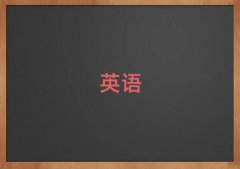课程标题:苏州英语口语学校,苏州英语口语培训
苏州吴中区英语口语是苏州吴中区英语口语培训学校的重点专业,苏州市知名的英语口语培训机构,教育培训知名品牌,苏州吴中区英语口语培训学校师资力量雄厚,全国各大城市均设有分校,学校欢迎你的加入。
1、专业的教师团队,掌握前沿的教学方法 2、教学经验丰富,善于激发学生的潜能 3、善于带动学员融入情景体验式课堂

苏州吴中区英语口语培训学校分布苏州市沧浪区,平江区,金阊区,虎丘区,吴中区,相城区,常熟市,张家港市,昆山市,吴江市,太仓市等地,是苏州市极具影响力的英语口语培训机构。
【记】和force(v. 强制,强迫)一起记
crusade [krused] n. 十字军(远征);运动(movement) v. 加入十字军,投身正义运动
They are very friendly, and enjoy a more relaxed pace of life than people inTokyo.
\"
The restaurant owner was furious. This student was stealing
the smells from his kit.chen. He decided to tatke him to court.
Everybody in the court laughed whcn the me; n man accuset thc
student of stealing hi.s smells\'. But thc judge took him seriously.\"Every
图画类写作模板
1.开头
Look at this picture shows this picture, we can is shown in the is seen in the picture...
2. 衔接句 As we all know, is known to all, is well known my opinion, far as I am concerned, sight reminds me of something in my daily life.
3.结尾句 In the a has been stated..
The film is rather boring. 这部电影很乏味。
(说明看法)
2) 疑问句(Interrogative Sentences):提出问题。有以下四种:
a. 一般疑问句(General Questions):
Can you finish the work in time?
你能按时完成工作吗?
b. 特殊疑问句(W Questions; H Questions):
Where do you live? 你住那儿?
How do you know that? 你怎么知道那件事?
c. 选择疑问句(Alternative Questions):
Do you want tea or coffee?
你是要茶还是要咖啡?
d. 反意疑问句(Tag-Questions):
He doesn\'t know her, does he?
他不认识她,对不对?
3) 祈使句(Imperative Sentences):提出请求,建议或发出命令,例如:
Sit down, please. 请坐。
Don\'t be nervous! 别紧张!
4) 感叹句(Exclamatory Sentences):表示说话人惊奇、喜悦、愤怒等情绪,例如:
What good news it is! 多好的消息啊!
(二)句子按其结构可以分为以下三类:
1) 简单句(Simple Sentences):只包含一个主谓结构句子叫简单句,例如:
She is fond of collecting stamps. 她喜欢集邮。
(主) (谓)
2) 并列句(Compound Sentences):包含两个或两个以上主谓结构的句子叫并列句,句与句之间通常用并列连词或分号来连接,例如:
The food was good, but he had little appetite.
(主) (谓) (主)(谓)
食物很精美,但他却没什么胃口。
3) 复合句(Complex Sentences):包含一个主句从句和一个或几个从句的句子叫复合句,从句由从属连词引导,例如:
The film had begun when we got to the cinema.
主句 从句
我们到达电影院的时候,电影已经开演了。
(三)基本句型(Basic Sentence Patterns):英语中千变万化的句子归根结底都是由以下五种基本句型组合、扩展、变化而来的:
1)主 + 动(SV)例如:
I work. 我工作。
2)主 + 动 + 表(SVP)例如:
John is busy. 约翰忙。
3)主 + 动 + 宾(SVO)例如:
She studies English. 她学英语。
4)主 + 动 + 宾 + 补(SVOC)例如:
Time would prove me right. 时间会证明我是对的。
5)主 + 动 + 间宾 + 直宾(SVOiOd)例如:
My mother made me a new dress. 我母亲给我做了一件新衣裳。
13.1 祈使句结构
祈使句用以表达命令,要求,请求,劝告等。
【例】The bedcover was quilted in a flower design. 床罩上设计了花的图案。
council [kansl] n. 理事会,委员会
【搭】cohesion-tension theory 内聚力(学)说
ductile [dktal] a. 易延展的(plastic)
sensual [senul] a. 感觉的;感官的
阅读时,先把文章粗略地浏览一下,看看文章中是否有自己工作和学习需要的或自己感兴趣的资料和信息,然后确定这篇文章是否值得细读。在查找资料时,如果没有充分时间,而又不需要高度理解时,就可以运用略读技巧。“不需要高度理解”并非指略读时理解水平可以很低,而是说略低于一般阅读速度所取得的理解水平是允许的。
【例】The quad\'s full of L S & players today. [University of Michigan, Ann Arbor, MI]
这样看起来貌似很强势,但是其实是缺少辩证能力的表现。
Do you speak English?
您讲英文吗?
Do you speak Chinese?
I can speak in English.
Chinese English French
Italian German Spanish
Portuguese Japanese Korean
Excuse me, do you speak English?
I am proficient in English, and I can speak a little German.
我英文很精通,而且我会说一点点德语。
English language proficiency text 英语测试
I speak only a little English.
I can speak a little Chinese.
It‘s broken.
Well, sorry, I speak broken Enlgish.
Forgive my broken English.
My English still needs work.
我的英语还有的余地。
How long have you been studying Spanish?
您西班牙语学了多长了?
I have been studying English for two years.
I started to learn English since two years ago.
What is your mother tongue?
您的母语是?
mother tongue
mother language
native language
I’m a Beijing native.
Beijing Native in New York
Shanghai Native in Tokyo.
Chinese is my native language.
Italian is her native language, but she speaks French fluently too.
【例】He should stop blocking the doorway. 他不应该堵着门口。//The supermarket is just down the block. 超市就在这个街区南边。
music in rural communities. 作曲家们经常在乡村创作音乐。
苏州吴中区英语口语培训学校成就你的梦想之旅。学英语口语就来苏州吴中区英语口语培训学校





 点击交谈
点击交谈

